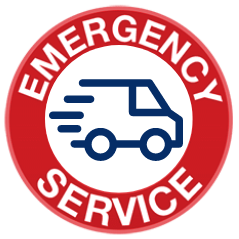Marietta, Georgia, is home to many great hiking and biking trails. When people talk about “short cycling” in Marietta, however, they aren’t referring to a bike trip around the block, but a serious air conditioning problem that can cost you money!
Short cycling refers to a condition when your HVAC system turns on-and-off too often. When short cycling occurs your home won’t be comfortable and you’ll be wasting energy and money. Short cycling can also put more wear-and-tear on your air conditioning system which can lead to costly repairs. Fortunately, you can take steps to avoid short cycling and the problems it can cause.
Right-Size Your HVAC System
HVAC systems are designed to deliver adequate heating and cooling based on factors like the size of your house, insulation, and geography. A small, new home in a moderate climate doesn’t need a large HVAC system, but a system that is too large is no better than one that is too small. Even if your home had the right size HVAC system installed originally, things can change like adding another room, more windows, or alterations to ductwork.
Replace Filters and Inspect
You should replace your HVAC air filters on a regular basis, which is typically every one to three months. Also ensure that the duct registers are dusted and aren’t blocked by furniture, drapes, or other items. Check your outside compressor system to ensure plants or debris aren’t blocking vents.
Schedule Professional Maintenance
In addition to the maintenance that you can do yourself, there are key issues that you can’t address. Damaged or frozen evaporator coils, dirty or leaking ductwork, low refrigerant levels, and electrical or electronic issues can all lead to problems, including short cycling. Regular professional maintenance can uncover and address a wide variety of problems and keep your HVAC system running properly.
Don’t let short cycling rob you of comfort and money. Contact us at E. Smith Heating & Air Conditioning at 678-369-8866 to ensure your HVAC system is performing to its best.
Short cycling can put more wear-and-tear on your HVAC system which can lead to costly repairs.


